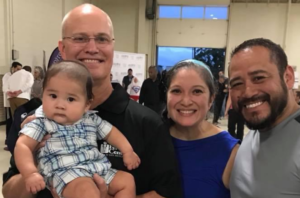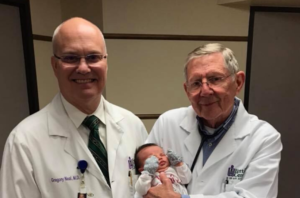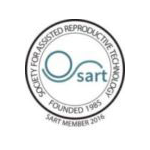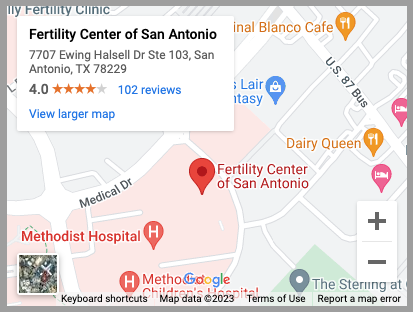Schedule a consultation with one of our trusted Reproductive Endocrinologists today.


Our Surrogacy Program Offers Another Path to Parenthood
At Fertility Center of San Antonio, we offer a gestational surrogacy program to help hopeful parents achieve their goals. Gestational surrogacy involves using in vitro fertilization to fertilize eggs from either the intended mother or donor eggs. The resulting embryos are implanted in the uterus of the surrogate, who carries out the pregnancy. During your consultation, you will have the opportunity to learn more about whether this option is right for you and your partner. To learn more about our surrogacy program, contact our San Antonio, TX, practice today.
We make every effort to help our patients understand how surrogacy works so that they can make an informed decision about whether this option is right for them.
Gestational vs. Traditional Surrogacy
Our program is a gestational surrogacy program, which means that the child is genetically related to the intended parents. Gestational surrogacy differs from traditional surrogacy because it involves using the eggs of either the intended mother or a donor. Traditional surrogacy involves using the surrogate’s eggs.
When Is Gestational Surrogacy Recommended?
Gestational surrogacy may be a viable option if other fertility treatments have proven unsuccessful. It may also be a recommended alternative for a patient who does not have a uterus, or has health issues relating to the uterus. Meanwhile, women who are unable to carry a pregnancy safely due to health concerns often consider gestational surrogacy. We will take all the time needed to answer your questions, assess your health, and help you determine if gestational surrogacy is the best way to realize your dream of parenthood.
How Does Gestational Surrogacy Work?
The process begins with patient education. We thoroughly explain the many benefits, risks, and other considerations involved in choosing this option before patients make their decision. The next step involves matching the intended parents with a surrogate. Potential surrogates are screened to ensure that they meet age criteria as well as other stringent physical and emotional health requirements.
Once the intended parents have been matched with a surrogate, the menstrual cycles of the intended mother and the surrogate are synchronized. Next, the intended mother and the surrogate begin hormonal therapy. Treatments are closely monitored using ultrasound and blood tests in order to effectively time retrieval of eggs from the intended mother, if her eggs are being used.
The eggs are then placed in an incubator with the sperm of the intended father or sperm from a donor. As part of the in vitro fertilization process, embryos grow over the course of several days until the best embryos are selected for transfer. We carefully assess the quality and quantity of embryos to determine how many should be transferred. During transfer, your doctor will use a catheter to place the embryos in a predetermined location within the uterus of the surrogate as she continues hormone treatment. A subsequent pregnancy test will be administered about two weeks after this procedure to determine if implantation was successful.
How Can I Learn More?
If you are considering gestational surrogacy and would like to learn more about our program, contact our practice today. We make every effort to help our patients understand how surrogacy works so that they can make an informed decision about whether this option is right for them.
Patient Testimonials

“I had the best experience and always recommend FCSA to anyone I know who may have trouble conceiving.”

“Awesome docs and staff! Sammy is almost 2 and baby Evelyn will be here in about 12 weeks thanks to you!”

“Because of FCSA, we have been blessed with the most beautiful little girl… Thank you FCSA for making our dream a reality!”

“Thank you Dr. Martin, Dr. Neal, and all the staff at FCSA for helping bring Miss Brielle into this world. We are forever grateful.”
Our Affiliations







